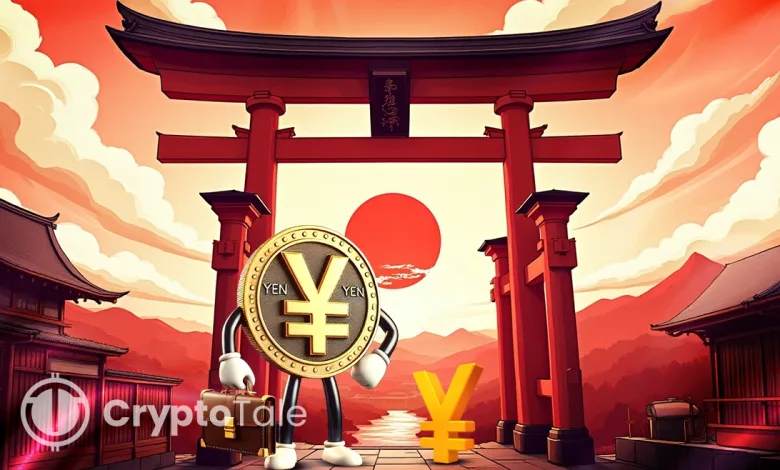Japan to Approve Yen-Backed Stablecoin JPYC To Challenge Dollar Power

- Japan approves JPYC stablecoin, signaling a shift in Asia’s digital currency adoption.
- JPYC stablecoin aims to rival dollar dominance in regional trade and digital payments.
- Analysts see JPYC as a step toward stronger digital finance independence for Japan.
Japan is preparing for a major shift in digital money. The country will approve its first yen-pegged stablecoin this fall. Local reports say the Financial Services Agency (FSA) will authorize JPYC, a stablecoin issued by Tokyo-based fintech firm JPYC Inc.
The project arrives at a time when U.S. dollar-backed stablecoins dominate the global market. Circle’s USDC and Tether’s USDT account for most of the $286 billion industry. Their expansion has already influenced U.S. Treasury markets, turning stablecoins into a hidden pillar of government debt demand. Japan now wants to explore whether a similar model can strengthen its own financial system.
JPYC Backed by Deposits and Bonds
JPYC Inc. will register as a money transfer business in August. The company will then begin selling the yen-pegged stablecoin. The token will maintain a one-to-one value with the yen. To ensure the peg, JPYC will hold liquid assets, including bank deposits and Japanese government bonds.
The company plans to issue one trillion yen worth of tokens over the next three years. That equals about $6.78 billion. Several hedge funds have already expressed interest in the offering. The token will support use cases such as international remittances, corporate payments, and DeFi transactions.
The move comes after years of regulatory preparation. In 2022, Japan introduced amendments to its Payment Services Act and defined the fiat-pegged tokens as “Electronic Payment Instruments.” Only banks, licensed firms, and trust companies can issue stablecoins under the law. In 2023, authorities further defined stablecoins as “currency-denominated assets.” These steps created the foundation for the JPYC launch.
A Potential Boost for Japan’s Bond Market
The JPYC launch could reshape Japan’s government bond market. According to company representative director Noriyoshi Okabe, U.S. stablecoin issuers have become large buyers of U.S. Treasuries. He believes JPYC could create similar demand for Japanese government bonds.
Okabe argued that stablecoins add a new layer of institutional demand for government debt. He said countries without stablecoin strategies risk higher borrowing costs. In his view, stablecoin demand is no longer just about crypto payments. It is becoming a tool of monetary policy and debt management.
If JPYC succeeds, it could increase demand for Japanese government bonds and potentially stabilize yields. That would mark a new chapter in the role of digital assets in traditional finance. It could also strengthen Japan’s monetary sovereignty at a time when U.S. dollar stablecoins dominate global crypto flows.
Circle’s USDC already operates in Japan after receiving regulatory approval in March. The company partnered with SBI Holdings to launch the token. USDC is listed on SBI VC Trade and will soon expand to Binance Japan, bitbank, and bitFlyer. These listings show the presence of dollar-backed stablecoins in Japan’s market even before JPYC launches.
Related: SBI’s Dual ETF Push: Japan’s Bid to Lead in Hybrid Investing?
Still, the arrival of a domestic yen-backed stablecoin could give Japanese institutions and companies a local option. The choice between U.S. and Japanese stablecoins may carry implications beyond crypto. It could influence capital flows, trade payments, and even cross-border lending.
Japan’s approval also signals a broader trend in Asia. Regional powers are examining whether domestic stablecoins can reduce reliance on the dollar in digital transactions. For Japan, JPYC represents not only a financial product but also a strategic step toward monetary resilience.




